12 Things You Can Do to Support Students with Executive Function Challenges
February 18, 2020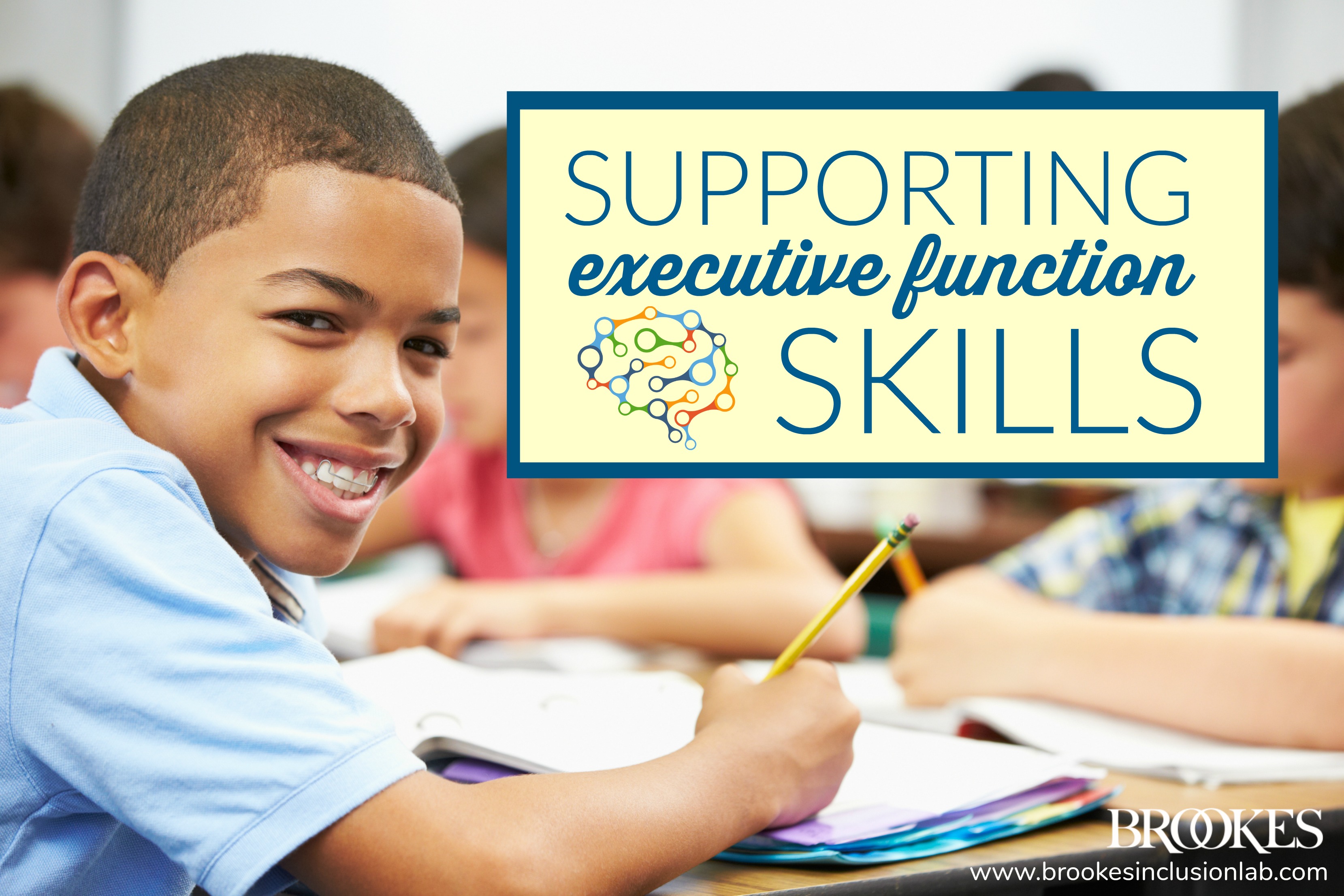
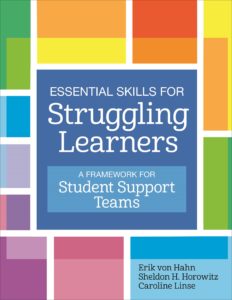 Executive function skills—including task initiation, attention span, flexibility, rule-following, and working memory—are important building blocks of your students’ academic and social success. Though these skills can be taught and learned just like academic subjects, most teachers don’t have a dedicated block of time to teach executive function skills and provide extra support to students who struggle with them. Support for executive function can and should be woven into lessons and routines throughout the school day—and today’s post gives you some good strategies for doing just that. Excerpted and adapted from the new book Essential Skills for Struggling Learners by Erik von Hahn, Sheldon H. Horowitz, & Caroline Linse, this post outlines 12 things you can do to support students with executive function challenges and help them build critical skills they’ll use for the rest of their lives.
Executive function skills—including task initiation, attention span, flexibility, rule-following, and working memory—are important building blocks of your students’ academic and social success. Though these skills can be taught and learned just like academic subjects, most teachers don’t have a dedicated block of time to teach executive function skills and provide extra support to students who struggle with them. Support for executive function can and should be woven into lessons and routines throughout the school day—and today’s post gives you some good strategies for doing just that. Excerpted and adapted from the new book Essential Skills for Struggling Learners by Erik von Hahn, Sheldon H. Horowitz, & Caroline Linse, this post outlines 12 things you can do to support students with executive function challenges and help them build critical skills they’ll use for the rest of their lives.
 Approach with empathy. A little empathy goes a long way when a student is having a tough time staying organized or paying attention. Show them you understand and empathize with what they’re going through, and you may find your students are more receptive to your help and guidance. For example, you could try approaching an easily distracted student with something like: “I’ve been paying attention to you, and I think I figured something out. You know what you need to do, but some of the time, things still don’t get done. Have you noticed that too?” After you talk about the issues for a while, you might add, “I want to make sure that you get everything done and that you don’t have to get too many reminders from me. Here are some ideas I’d like to share with you.”
Approach with empathy. A little empathy goes a long way when a student is having a tough time staying organized or paying attention. Show them you understand and empathize with what they’re going through, and you may find your students are more receptive to your help and guidance. For example, you could try approaching an easily distracted student with something like: “I’ve been paying attention to you, and I think I figured something out. You know what you need to do, but some of the time, things still don’t get done. Have you noticed that too?” After you talk about the issues for a while, you might add, “I want to make sure that you get everything done and that you don’t have to get too many reminders from me. Here are some ideas I’d like to share with you.”
Frame your goals the right way. Watch how you phrase your goals—you don’t want to build yourself a tower that’s impossible to climb. Avoid vague, unrealistic goals like “John will stay on task 100% of the time and follow all rules,” even if that’s the ideal. Instead, make John’s goal more specific and easier to work toward: “John will perform his tasks while using accommodations for distractions” or “John will follow rules and use a repair strategy when a rule gets broken.”
 Make a clear plan. Students who struggle with executive function skills tend to perform better when you provide them with a well-defined plan and follow up with individualized attention to reinforce it. Develop clear, simple, and explicit instructions for tasks up front, and make sure your students understand them. For students with executive function issues, you may want to see if they can recite the instructions back to you before they start the task.
Make a clear plan. Students who struggle with executive function skills tend to perform better when you provide them with a well-defined plan and follow up with individualized attention to reinforce it. Develop clear, simple, and explicit instructions for tasks up front, and make sure your students understand them. For students with executive function issues, you may want to see if they can recite the instructions back to you before they start the task.
Provide visual reminder systems. Visual reminders of the steps and instructions connected with a task can be a huge help to a student who struggles with working memory and task persistence. Provide your students with reminders such as graphic organizers, a set of photographs or pictures placed in the right order, or a written task list. Explain to your students how to use the reminders as visual tools they can check periodically to make sure that they’re completing all steps of the task. If a student reverts to prior behaviors, try not to use corrective feedback to walk them through the steps; instead, prompt the student to use the visual reminder system. Nudge them with “check your reminder system,” or say “hmm, that didn’t work out. Did you forget anything?”
Use a signal when you start a task. Do you have students who seem to be “off in their own world” when it’s time to start a new task? Take a second to orient your class to a new activity with a clear signal that catches their attention. This could be as simple as saying “please look at me!” before making a request. You can also try visual and auditory stimuli such as ringing a bell, clapping your hands, or flicking the lights off and then on. Tune in to your students’ eye gaze to be sure they’re oriented to the task or activity before you continue.
Manage expectations for focusing on a task. High expectations are a good thing, but it may only be possible for your student to make small gains over the course of your school year together. Focus on those small steps of progress and make them your goal. For example, you can try using a timer to help your student understand how long they normally stay on task, and over time, you might ask that student to focus just a little bit longer.
 Make strategic modifications. For students who need support with executive function skills, you may want to modify the scope of your curriculum and/or the pace of your instruction. When you break tasks down into smaller segments, your student may find it easier to successfully complete activities, because you’ve reduced the demands on their attention span. Aim for short periods of high-quality work for students who need support instead of asking them to focus for the same length of time as other students, which will likely result in lower-quality work.
Make strategic modifications. For students who need support with executive function skills, you may want to modify the scope of your curriculum and/or the pace of your instruction. When you break tasks down into smaller segments, your student may find it easier to successfully complete activities, because you’ve reduced the demands on their attention span. Aim for short periods of high-quality work for students who need support instead of asking them to focus for the same length of time as other students, which will likely result in lower-quality work.
Prepare students for changes in advance. Learners with executive function challenges may be averse to changes in your schedules and routines. But even students who appear to be inflexible can often accept changes when they’re clearly discussed in advance. You might say, “I know you like to do things the same way, but I think you won’t mind doing things a new way as long as you know how to do it. Let me show you how it works.” As a longer-term goal, you might aim to help students accept new plans more often or more quickly. You can also coach peers to help the student by planning with them ahead of time. You can say: “Hey everybody, I have an idea. Ashley wants to play with you, but she might need to know what you’re going to do before you do it. Why don’t you discuss the plan first? I think it’ll make it work better for everybody.”
 Set up a “gentle reminder” motion. You might need to establish an agreement with your student about how and when you’ll use gentle reminders when they’re veering off track. Say something like, “Let’s decide how I should help you, because you aren’t always going to notice it when you are acting before thinking. I know that you don’t want me to single you out in front of the class. So why don’t we come up with a silent signal like touching my ear, that I can use to remind you to ‘Stop, think, and then act.’ What would work for you?”
Set up a “gentle reminder” motion. You might need to establish an agreement with your student about how and when you’ll use gentle reminders when they’re veering off track. Say something like, “Let’s decide how I should help you, because you aren’t always going to notice it when you are acting before thinking. I know that you don’t want me to single you out in front of the class. So why don’t we come up with a silent signal like touching my ear, that I can use to remind you to ‘Stop, think, and then act.’ What would work for you?”
Schedule times for corrective feedback. Providing students with a constant stream of corrective feedback can feel overwhelming and discouraging to them. To avoid this, consider deciding with the student in advance how errors will be corrected. You can schedule regular times for monitoring and feedback—for example, you could say to the student, “I’m going to check in with you every 15 minutes,” or “I’m going to check in with you at the end of each activity and give you feedback.” Reducing the volume of corrective feedback may help your student be more receptive to it.
 Celebrate their successes. All students benefit from knowing what it feels and looks like when they’re succeeding. Give positive feedback for small triumphs as they happen: “Wow, I noticed that you focused on that work task for 15 minutes,” or “I noticed that you followed the rules of the classroom routine really well just now.” Make an effort to catch the student being successful—your positive feedback is an especially important reinforcer right at the moment the student is succeeding. Try seating students who need extra support closer to you, so you can more easily notice their successes and provide encouragement.
Celebrate their successes. All students benefit from knowing what it feels and looks like when they’re succeeding. Give positive feedback for small triumphs as they happen: “Wow, I noticed that you focused on that work task for 15 minutes,” or “I noticed that you followed the rules of the classroom routine really well just now.” Make an effort to catch the student being successful—your positive feedback is an especially important reinforcer right at the moment the student is succeeding. Try seating students who need extra support closer to you, so you can more easily notice their successes and provide encouragement.
Make it clear that “failures” are an opportunity for learning. Students need explicit reminders that mistakes are nothing to be ashamed of and can help them learn and grow. Reassure your students of the value of mistakes and their ability to fix them: “If you find that all of a sudden, without thinking, you did something that you shouldn’t have done, you can always go back and make up for your mistake.”
Above all, keep in mind that executive function skills aren’t developed once and then mastered—rather, they’re learned over an extended period of time and should be taught and reinforced frequently. Develop and use a plan to teach these skills, and then monitor your students’ progress regularly to see what needs to be clarified or emphasized again.
EXPLORE THE BOOK
 Essential Skills for Struggling Learners
Essential Skills for Struggling Learners
A Framework for Student Support Teams
By Erik von Hahn, M.D., Sheldon H. Horowitz, Ed.D., & Caroline Linse, Ed.D.
This innovative planning guide is your key to identifying and prioritizing the essential skills that students with and without learning difficulties need to succeed. Learn about 11 key domains of learning—divided into neurological, developmental, and educational domains—and get a complete, collaborative plan for pinpointing where students need help and adapting your supports to meet those needs.
LEARN MORE NOW

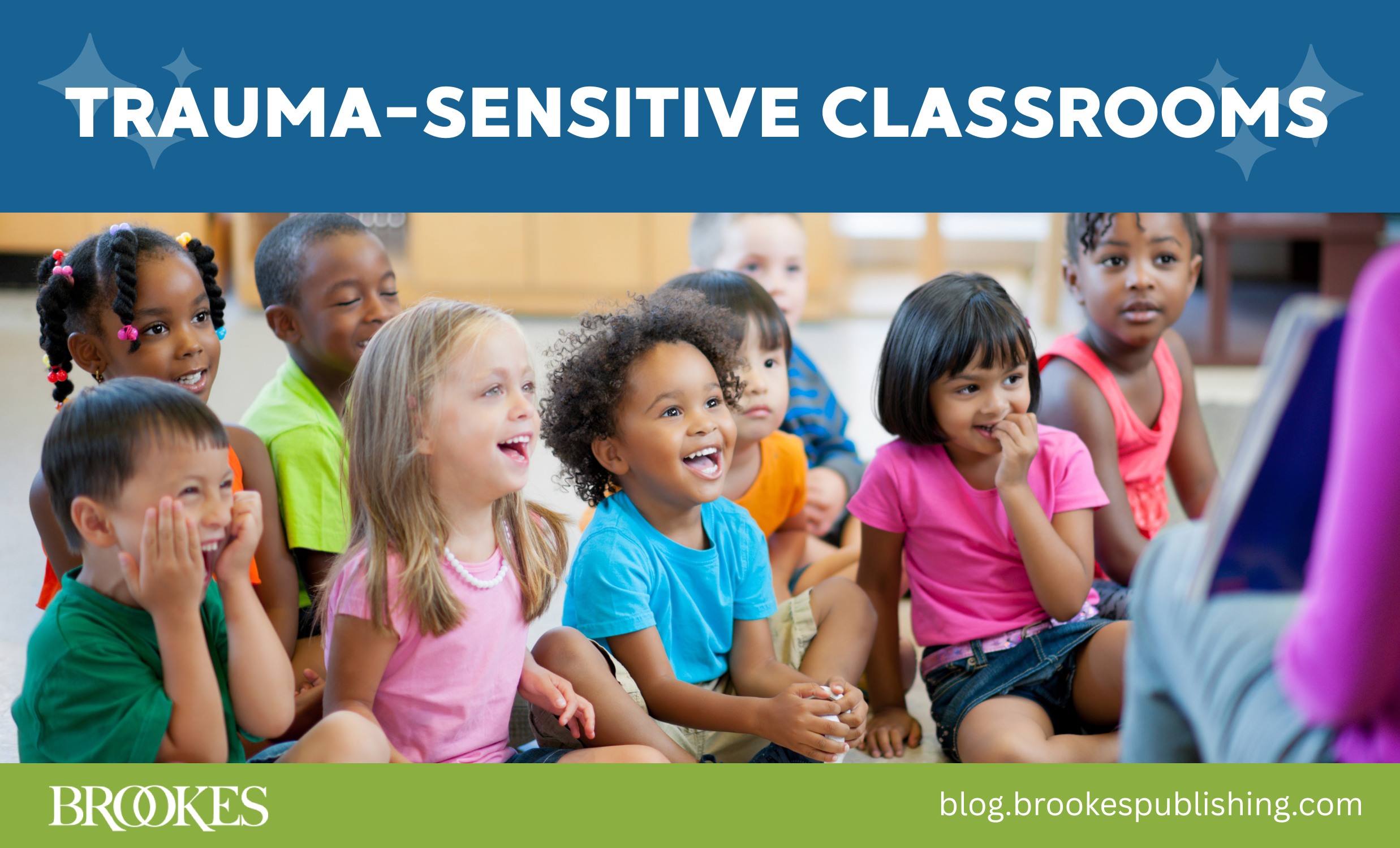
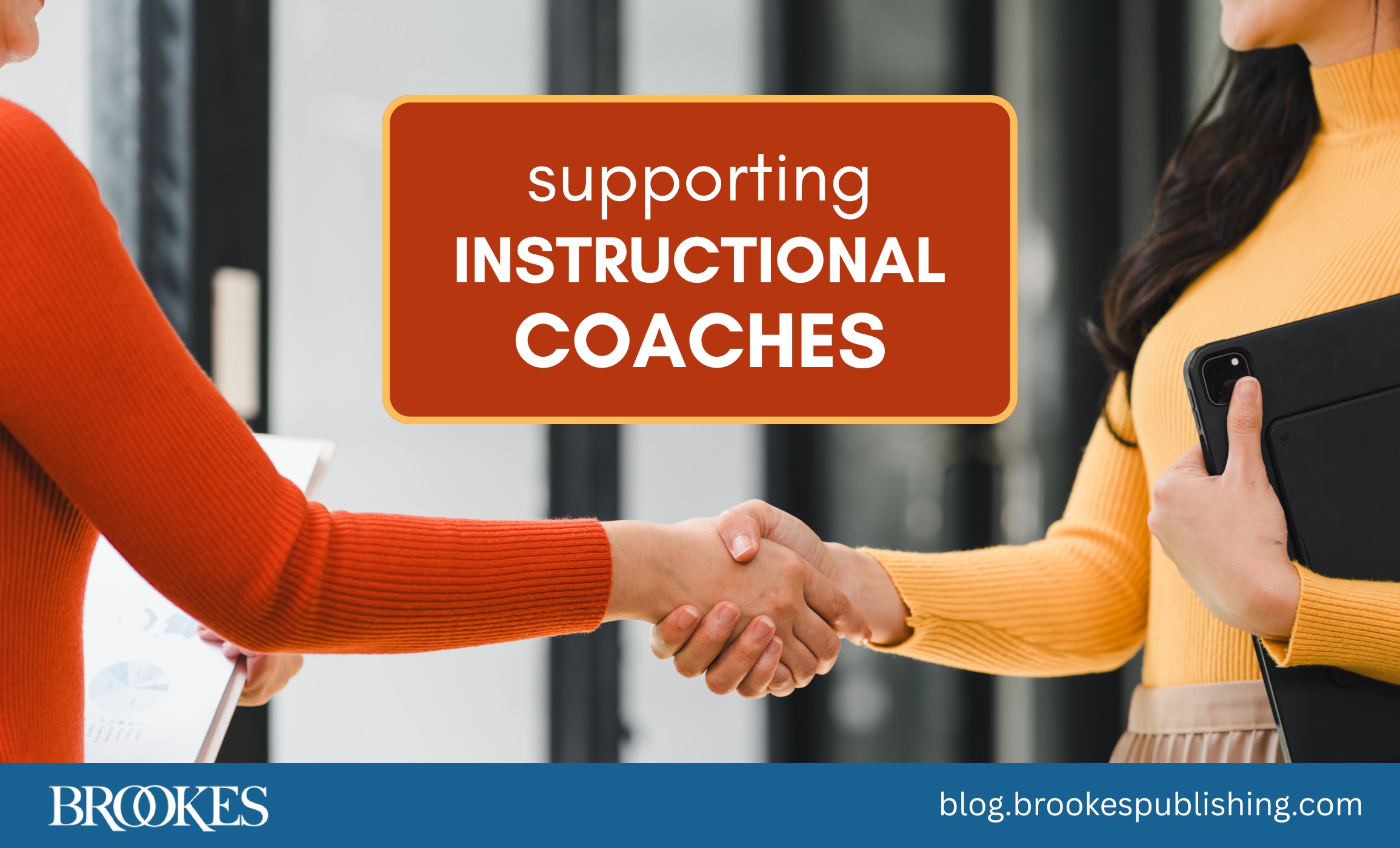
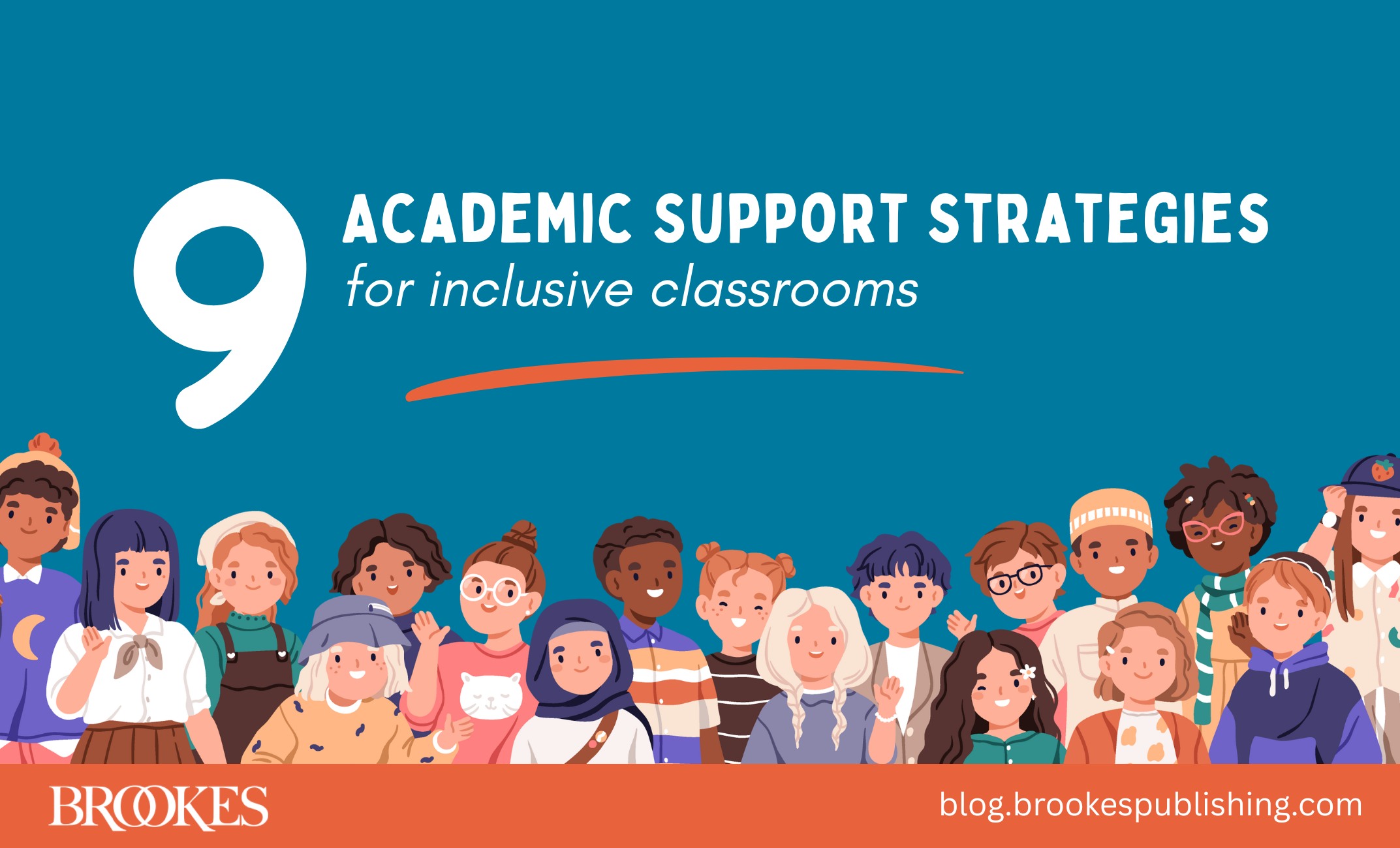
Write a Comment
Your email address will not be published. Required fields are marked *
Post a Comment